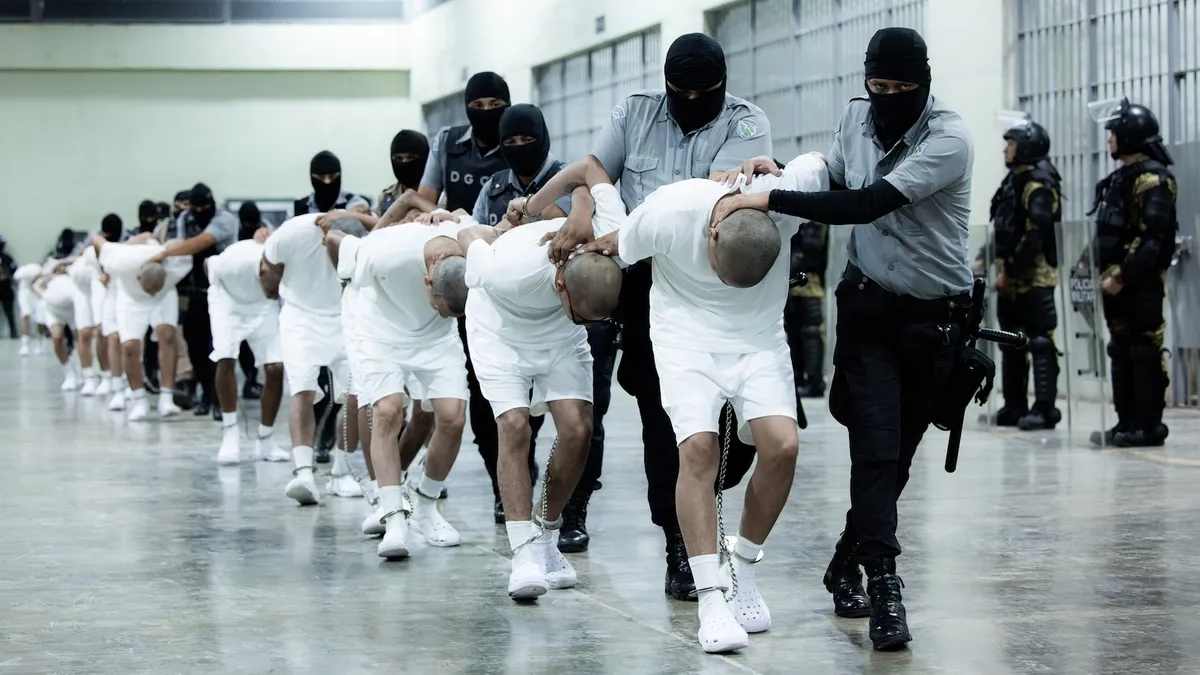
In a significant ruling last week, U.S. District Judge James Boasberg determined that the Venezuelan migrants deported by the Trump administration to El Salvador deserve a court hearing before their removal. This hearing would allow the individuals to contest their alleged affiliation with the Tren de Aragua gang. Judge Boasberg's decision comes as a response to the administration's request to dissolve his earlier order that blocked these deportations. The judge emphasized that the unprecedented invocation of the Alien Enemies Act by Trump does not absolve the government from its duty to ensure that these migrants can challenge their designation as gang members.
Last week, former President Trump invoked the Alien Enemies Act, a wartime authority historically used to deport noncitizens with minimal due process. He claimed that the Venezuelan gang, Tren de Aragua, represents a hybrid criminal state that poses a threat to U.S. security. However, Judge Boasberg highlighted that the court does not need to address the complicated legalities surrounding this claim at this time. Instead, he focused on a more fundamental principle: the right to individualized hearings for the migrants before they face deportation.
In his ruling, Judge Boasberg stated that the migrants are likely to prevail in their legal challenge. He pointed out that the men have suffered irreparable harm due to their deportation to a prison in El Salvador, where they are at risk of torture, beatings, and potential death. The judge asserted that federal courts are fully equipped to address challenges regarding individuals facing detention and removal based on their alleged gang affiliations.
During a recent court hearing, lawyers from the Department of Justice (DOJ) acknowledged that the deported individuals have the right to a habeas hearing to dispute their alleged ties to Tren de Aragua. However, they did not guarantee that each migrant would receive this hearing before deportation. The Trump administration is now appealing Judge Boasberg's ruling, which not only blocks their deportation efforts but also raises questions about the legality of the administration's use of the Alien Enemies Act.
If the D.C. Circuit Court of Appeals overturns Judge Boasberg's order, the Trump administration could potentially deport any suspected gang member without due process. Lawyers representing the Venezuelan migrants have argued that the use of the Alien Enemies Act against a non-state actor, like a gang, is beyond the president's authority, especially in a time of peace.
Judge Boasberg expressed skepticism regarding the administration's claims that allowing the migrants to contest their deportation poses a national security risk. He noted that these men would still be detained within the United States had they not been deported. In his ruling, he referred to the removals as "awfully frightening and incredibly troublesome," emphasizing the lack of due process for the individuals involved.
As legal proceedings continue, the Trump administration has indicated its intent to utilize other authorities for the deportation of noncitizens. Meanwhile, Venezuelan National Assembly President Jorge Rodriguez announced an agreement to restart repatriation flights for Venezuelan migrants from the U.S. The administration's actions are under scrutiny as Judge Boasberg investigates whether the government violated his order by sending the migrants to El Salvador instead of returning them to the U.S.
With the case now in the hands of a three-judge panel, including two judges appointed by Republican presidents, the outcome remains uncertain. The D.C. Circuit Court represents the last avenue before the Trump administration might escalate the matter to the U.S. Supreme Court, which now has a conservative majority following Trump's previous nominations.